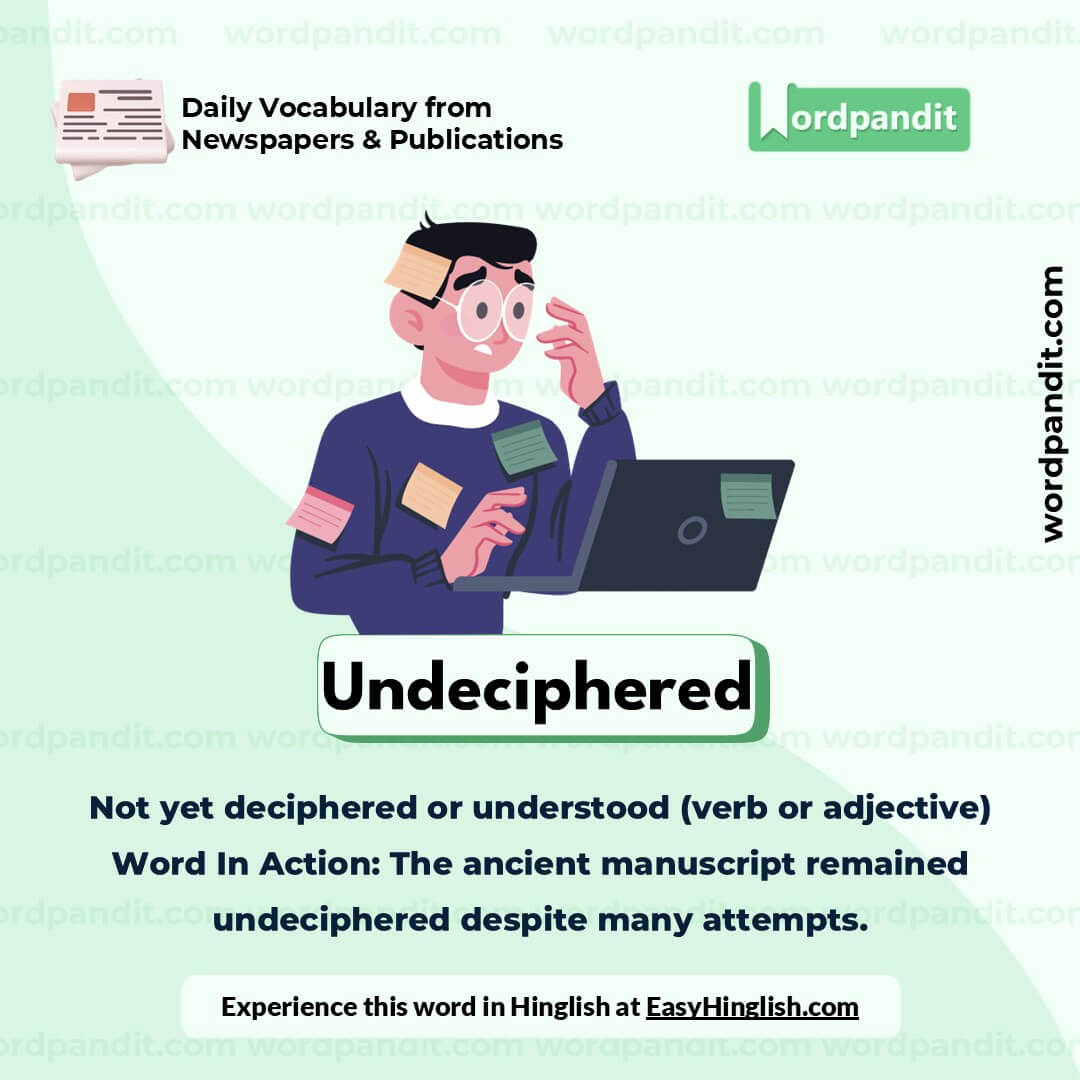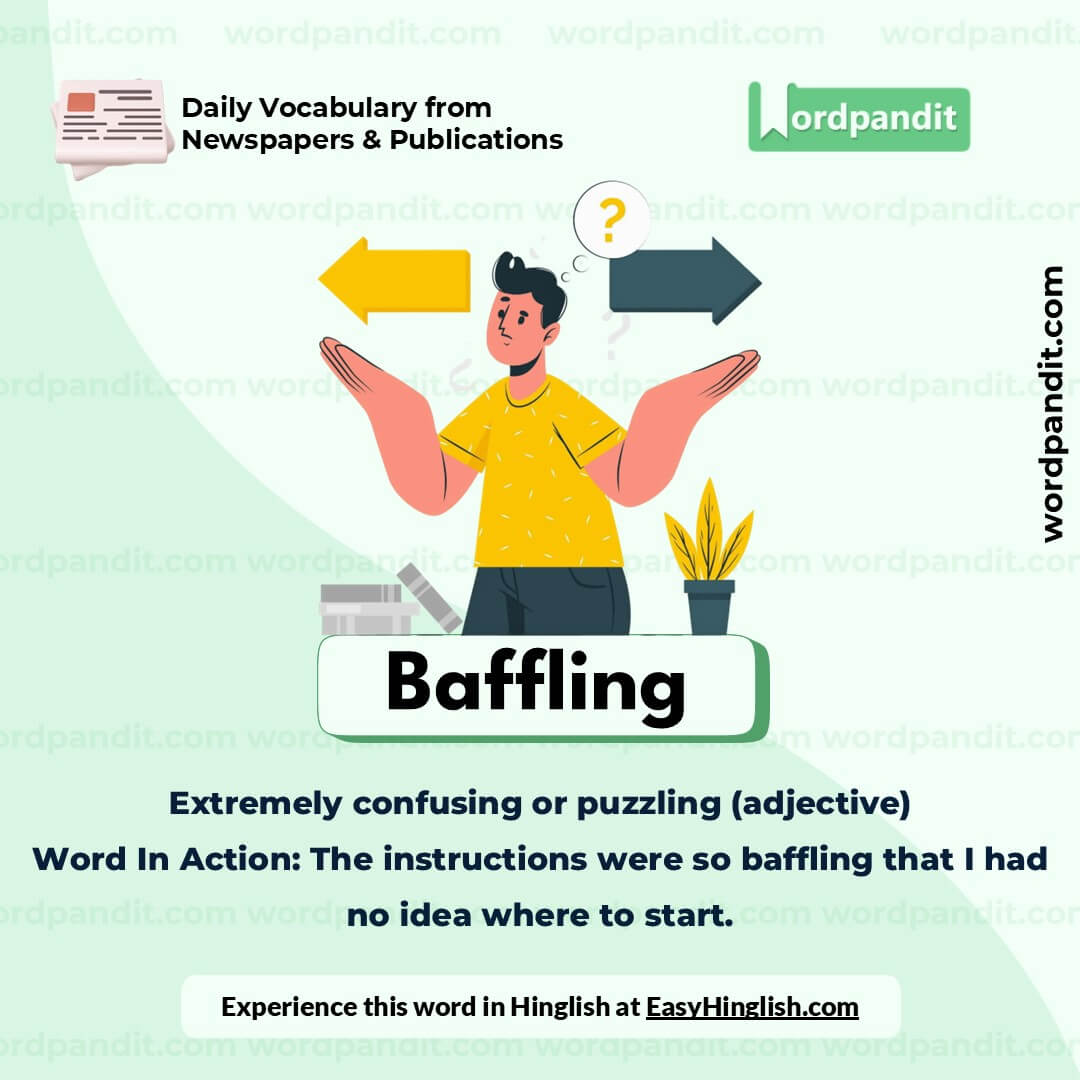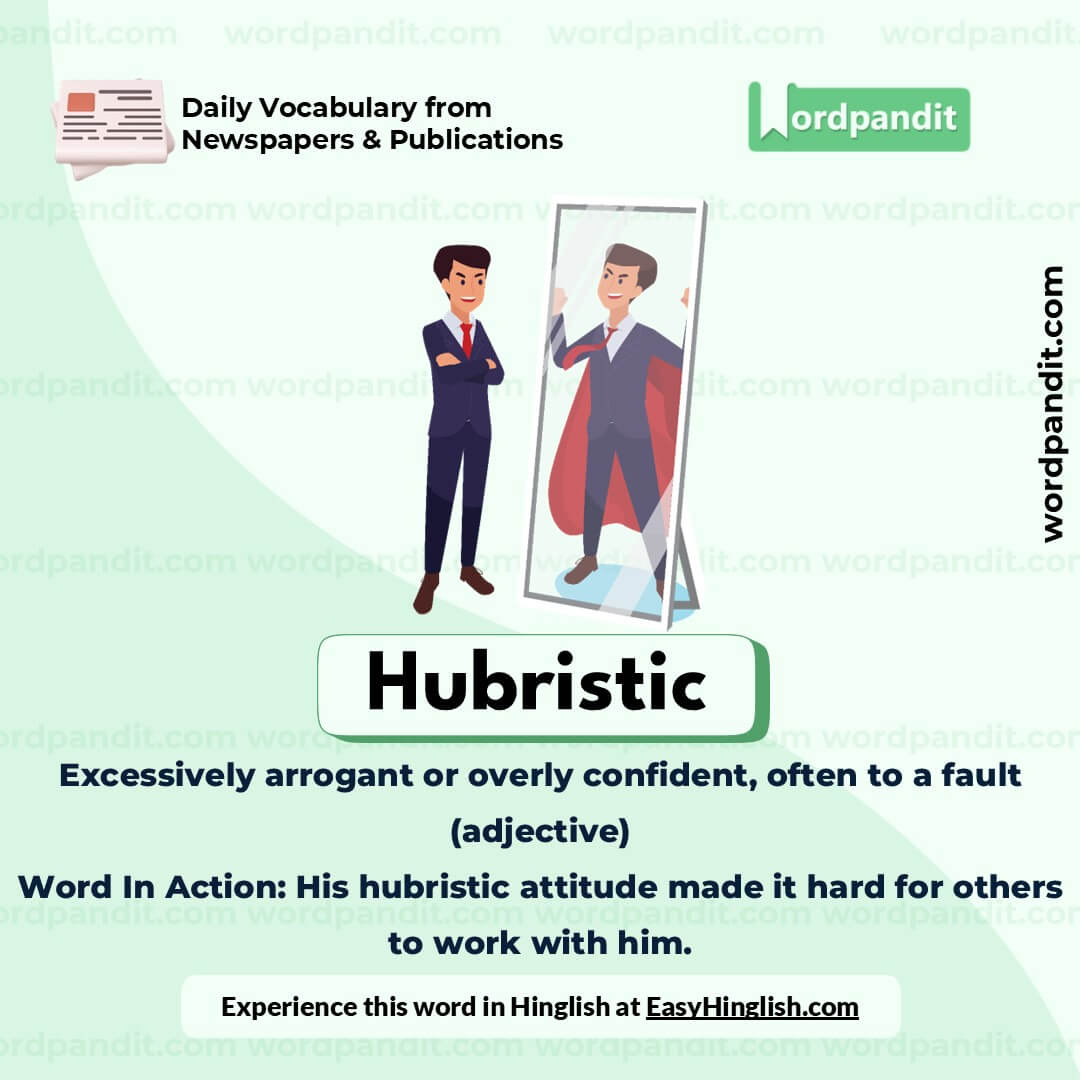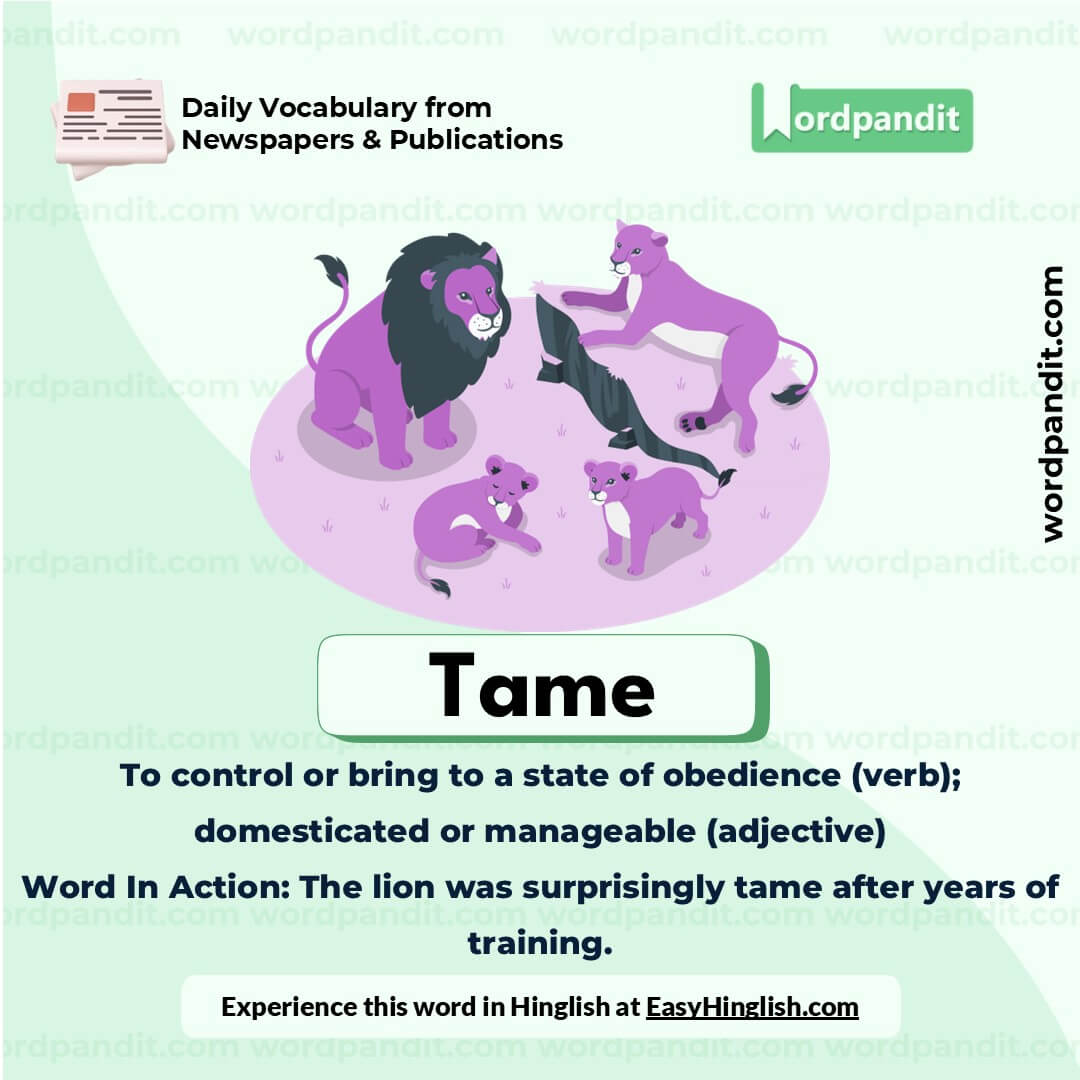Daily Vocabulary from International Newspapers and Publications
Expand Your Vocabulary with Wordpandit’s Global Vocabulary Hub
At Wordpandit, we are committed to helping you develop a truly global vocabulary by drawing from some of the most respected international publications. This section is designed to keep you ahead of the curve by introducing you to words that define global conversations and trends.
The Power of Global Sources
To help you think and communicate on a global scale, we curate vocabulary from renowned international sources, such as:
- The New York Times
- The Washington Post
- BBC
- The Guardian
- The Economist
- Scientific American
- Psychology Today
- And many more...
Stay Global, Stay Competitive
Our daily updates from international publications ensure you are consistently exposed to new words that reflect global news and developments, making sure your vocabulary is not only current but also globally relevant.
Enhance Your Global Perspective
Whether you’re preparing for international exams, aiming to excel in global business communication, or want to enhance your language skills for personal growth, Wordpandit offers the resources you need to thrive in a global context.
Effective Learning, Global Reach
Our learning methodology combines global examples, memory aids, and interactive activities, allowing you to internalize new words effectively and apply them in real-world scenarios.
Begin Your Global Vocabulary Journey Now!
Why Choose Wordpandit?
Practical Learning: Focus on words you'll actually encounter in real-world reading, enhancing your comprehension and communication skills.
Diverse Content: From current affairs to scientific breakthroughs, our varied sources expose you to vocabulary across multiple domains.
Effortless Integration: Make Wordpandit a part of your daily routine. Just a few minutes each day can significantly boost your lexicon over time.
Your Path to Vocabulary Mastery
- Visit our Daily Vocabulary section regularly
- Explore new words and their usage in context
- Practice incorporating these words into your own writing and speech
- Track your progress as your vocabulary expands
Start Your Journey Today
Embark on your vocabulary enhancement journey with Wordpandit. By consistently engaging with our daily posts, you'll build a robust vocabulary that serves you well in academic, professional, and personal contexts.
Remember, a word a day keeps linguistic limitations at bay. Make Wordpandit your daily companion in the quest for vocabulary excellence!
WORD-1: Undeciphered
Context:
"The collection chronicles millennia of change under various rulers, religions, and climatic regimes. It contains whole temple edifices, colossal statues of Kushite kings, and mysterious inscriptions in the undeciphered Meroitic language." - The Conversation
Explanatory Paragraph:
The term "undecipher" refers to something that has not yet been interpreted, translated, or understood, especially in the context of writing, symbols, or codes. It is used to describe content or information that remains a mystery due to a lack of knowledge or tools to decode it.
Meaning: Not yet deciphered or understood (verb or adjective).
Pronunciation: un-deh-sy-fer
Difficulty Level: ⭐⭐⭐ Intermediate
Etymology: Derived from the prefix "un-" meaning "not" and "decipher," which originates from the Old French "decifrer," meaning to make out or explain, and ultimately from the Latin "cifra," meaning code.
Synonyms & Antonyms:
Synonyms: Untranslated, unsolved, unreadable
Antonyms: Deciphered, translated, interpreted
Usage Examples:
- The undeciphered manuscript remains one of the greatest mysteries in historical linguistics.
- Archaeologists discovered undeciphered symbols carved into the ancient stone tablets.
- Despite years of research, the code remains undeciphered, leaving historians baffled.
- The undeciphered text may hold critical insights into the culture of the civilization.
Cultural Reference:
"The Voynich manuscript, an undeciphered text from the 15th century, continues to intrigue researchers worldwide." - Encyclopedia of Mysteries
Think About It:
What challenges do researchers face in decoding ancient, undeciphered languages, and how might technology play a role in solving these mysteries?
Quick Activity:
Research one undeciphered text or language, such as Linear A or the Rongorongo script. Write down three facts about why it remains undeciphered.
Memory Tip:
Think of "un-" as a prefix meaning "not" and "decipher" as solving a mystery. Combine them, and "undecipher" means "not solved."
Real-World Application:
The word "undecipher" is frequently used in archaeology, cryptography, and historical research to describe texts, codes, or languages that remain unsolved, highlighting the ongoing quest for knowledge in these fields.
WORD-2: Baffling
Context:
"And using the right regression we can tame even the most baffling elements of the human condition." - Aeon
Explanatory Paragraph:
"Baffling" describes something that is extremely confusing, puzzling, or hard to understand. It is often used to express the challenge or frustration of trying to comprehend something that seems inexplicable or enigmatic.
Meaning: Extremely confusing or puzzling (adjective).
Pronunciation: baf-ling
Difficulty Level: ⭐⭐ Beginner
Etymology: The word "baffling" comes from "baffle," which is believed to have originated in the early 16th century, meaning "to perplex or bewilder," possibly from Scottish dialect or Old French "bafouer," meaning "to ridicule."
Synonyms & Antonyms:
Synonyms: Perplexing, puzzling, bewildering
Antonyms: Clear, understandable, straightforward
Usage Examples:
- The magician's tricks were so baffling that the audience could not figure out how they were done.
- The baffling instructions left the students more confused than before.
- It is baffling how some historical events are still not fully understood by scholars.
- The sudden disappearance of the artifact remains a baffling mystery.
Cultural Reference:
"Sherlock Holmes often faced baffling cases that required his extraordinary powers of deduction to solve." - Arthur Conan Doyle
Think About It:
Why do you think some problems or phenomena remain baffling even with advancements in technology and science?
Quick Activity:
Write down three examples of baffling situations you've encountered in daily life. Reflect on how you dealt with each one.
Memory Tip:
Think of "baffling" as a "mental maze" that leaves you puzzled and unable to find the way out.
Real-World Application:
The word "baffling" is often used in everyday language to describe situations that are difficult to understand, from complex scientific theories to everyday conundrums, making it a handy term for expressing confusion.
WORD-3: Hubristic
Context:
"Within this dominant, hubristic paradigm of social science, our world is treated as one that can be understood, controlled and bent to our whims. It can’t." - Aeon
Explanatory Paragraph:
"Hubristic" refers to an attitude or behavior that is excessively arrogant or overly confident, often ignoring limitations or potential consequences. The term is typically associated with an inflated sense of one’s own importance or abilities, leading to presumptuous or reckless actions.
Meaning: Excessively arrogant or overly confident, often to a fault (adjective).
Pronunciation: hyoo-bris-tik
Difficulty Level: ⭐⭐⭐ Intermediate
Etymology: Derived from the Greek word "hubris," meaning excessive pride or arrogance, often used in literature and mythology to describe defiance against the gods, leading to downfall.
Synonyms & Antonyms:
Synonyms: Arrogant, overconfident, presumptuous
Antonyms: Humble, modest, self-effacing
Usage Examples:
- The hubristic CEO ignored warnings from his team and made decisions that led to the company’s downfall.
- Critics argue that the project was doomed from the start due to the hubristic ambitions of its leaders.
- The hubristic attitude of the conqueror led to his ultimate defeat by a seemingly weaker opponent.
- The film explores the hubristic behavior of a scientist who attempts to play god.
Cultural Reference:
"In Greek mythology, hubris often led to the downfall of heroes who defied the gods, such as Icarus, whose hubristic attempt to fly too close to the sun caused his demise." - Mythological Tales
Think About It:
How can societies balance ambition and innovation without falling into the trap of hubristic overconfidence?
Quick Activity:
Identify a historical event where hubristic behavior led to significant consequences. Write a brief summary of the event and its outcomes.
Memory Tip:
Remember "hubristic" by associating it with "hubris," which sounds like "huge pride," leading to overconfidence and mistakes.
Real-World Application:
The term "hubristic" is frequently used in political, corporate, and academic discussions to critique overly confident decisions or policies that disregard limitations or warnings, often leading to avoidable failures.
WORD-4: Metropolise
Context:
"Its artefacts range from the distant stone age, to one of sub-Saharan Africa’s earliest metropolises in Kerma (2500-1500 BCE), to the extraordinary objects of the Kushite empire (800 BCE-350 CE). There, powerful kings built large stone temples, cities, and fields of pyramids." - The Conversation
Explanatory Paragraph:
"Metropolis" refers to a large and significant city, often the economic, political, or cultural hub of a region or country. Historically, the term is used to describe major urban centers that were powerful or influential, such as ancient cities that were capitals of empires.
Meaning: A large, significant city, often a center of activity (noun).
Pronunciation: meh-trop-oh-lis
Difficulty Level: ⭐⭐ Beginner
Etymology: Derived from the Greek words "mētēr" (mother) and "polis" (city), the term originally referred to a mother city of a colony in ancient Greece.
Synonyms & Antonyms:
Synonyms: City, urban center, capital
Antonyms: Village, hamlet, rural area
Usage Examples:
- The metropolis of New York City attracts millions of visitors every year.
- In ancient times, Athens was considered a cultural metropolis of Greece.
- Modern metropolises are often characterized by their towering skyscrapers and bustling streets.
- The metropolis serves as the economic and cultural heart of the nation.
Cultural Reference:
"The 1927 film 'Metropolis' by Fritz Lang portrays a futuristic urban dystopia, reflecting the challenges and dreams associated with modern cities." - Film Archives
Think About It:
What factors contribute to the rise of a metropolis, and how do they impact the surrounding rural areas?
Quick Activity:
List three modern cities that you consider metropolises and explain why they hold this status.
Memory Tip:
Remember "metropolis" as a "mother city," the central hub from which activity radiates, much like how the term originated in ancient Greece.
Real-World Application:
The term "metropolis" is frequently used in urban studies, geography, and cultural discussions to describe cities that serve as focal points of human activity and development.
WORD-5: Tame
Context:
"And using the right regression we can tame even the most baffling elements of the human condition." - Aeon
Explanatory Paragraph:
The word "tame" means to bring something under control, often implying mastery over something that was wild, unruly, or difficult to manage. It can refer to both literal situations, such as taming animals, and figurative ones, such as controlling complex problems or emotions.
Meaning: To control or bring to a state of obedience (verb); domesticated or manageable (adjective).
Pronunciation: taym
Difficulty Level: ⭐ Beginner
Etymology: Derived from the Old English "tam" or "temian," meaning to domesticate or subdue, with roots in the Proto-Indo-European word "demə," meaning house or home.
Synonyms & Antonyms:
Synonyms: Subdue, control, domesticate, restrain
Antonyms: Wild, untamed, uncontrolled, chaotic
Usage Examples:
- The lion tamer managed to tame the ferocious beast with patience and skill.
- Through consistent practice, she tamed her fear of public speaking.
- The engineers worked hard to tame the unpredictable river with a series of dams.
- He attempted to tame his unruly hair before the important meeting.
Cultural Reference:
"In literature, 'The Taming of the Shrew' by William Shakespeare explores the concept of taming a strong-willed individual to fit societal expectations." - Shakespeare's Plays
Think About It:
What are the ethical considerations when attempting to tame natural forces, animals, or even human behaviors?
Quick Activity:
Write down three situations in your life where you had to tame a challenging problem. How did you manage it?
Memory Tip:
Think of "tame" as calming or controlling something wild, like training an animal to obey commands.
Real-World Application:
The word "tame" is commonly used in various fields, from agriculture (taming animals) to personal development (taming fears or emotions) and even science (taming complex systems).
















